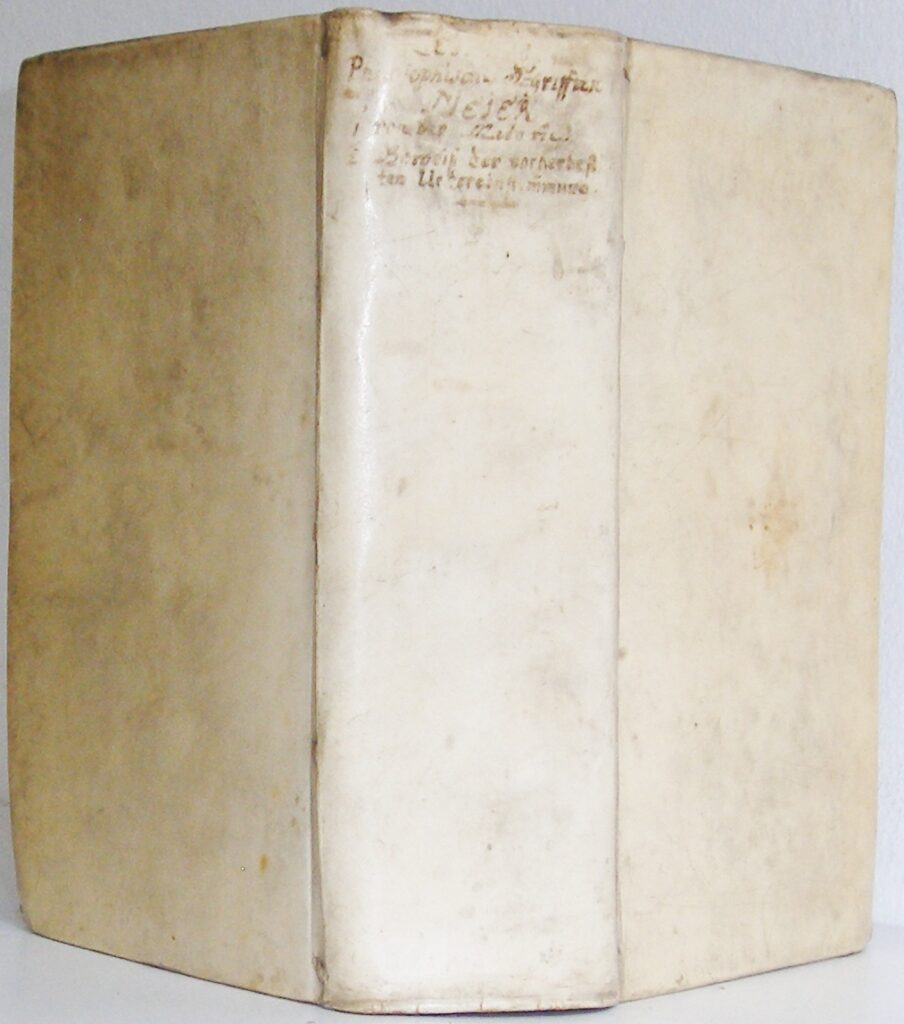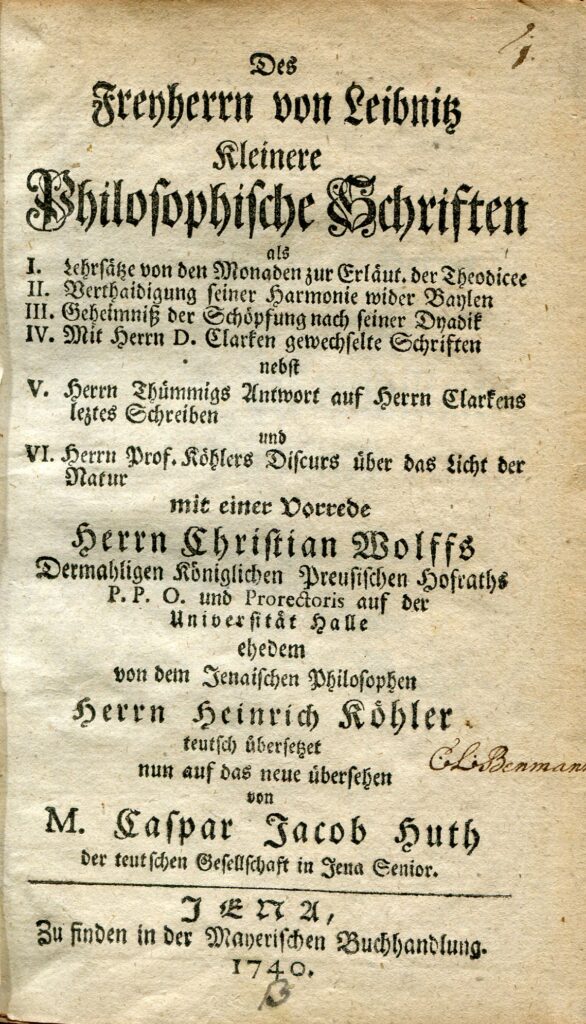Rare first Leibniz edition, bound with first editions of two related works by Georg Friedrich Meier (1718-77), one on materialism, the other on pre-established harmony. The Leibniz is rather misleadingly titled; what calls itself a collection of his minor writings in fact includes the Monadologie (in Huth’s extended revision of Köhler’s 1720 translation from the original French), Leibniz’s replies to Bayle on pre-established harmony, and extracts from the correspondence with Samuel Clarke. Ravier 412.
The two pieces by Meier are early, dating from his time as a student under A.G. Baumgarten, before he got his full professorship at Halle in 1748. ‘While Baumgarten presents his views on Pre-established Harmony and Physical Influx within the context of his general metaphysics textbook, Meier, his student, devotes an entire treatise to the issue in 1743, namely Beweis der vorherbestimmten Übereinstimmung. Accordingly, although Meier follows Baumgarten’s main view, he is able to develop it in more detail. Thus, he feels justified in advancing Pre-established Harmony as a theorem rather than as a probable hypothesis’ (Eric Watkins, ‘From Pre-established Harmony to Physical Influx’, JHI, 1998).


